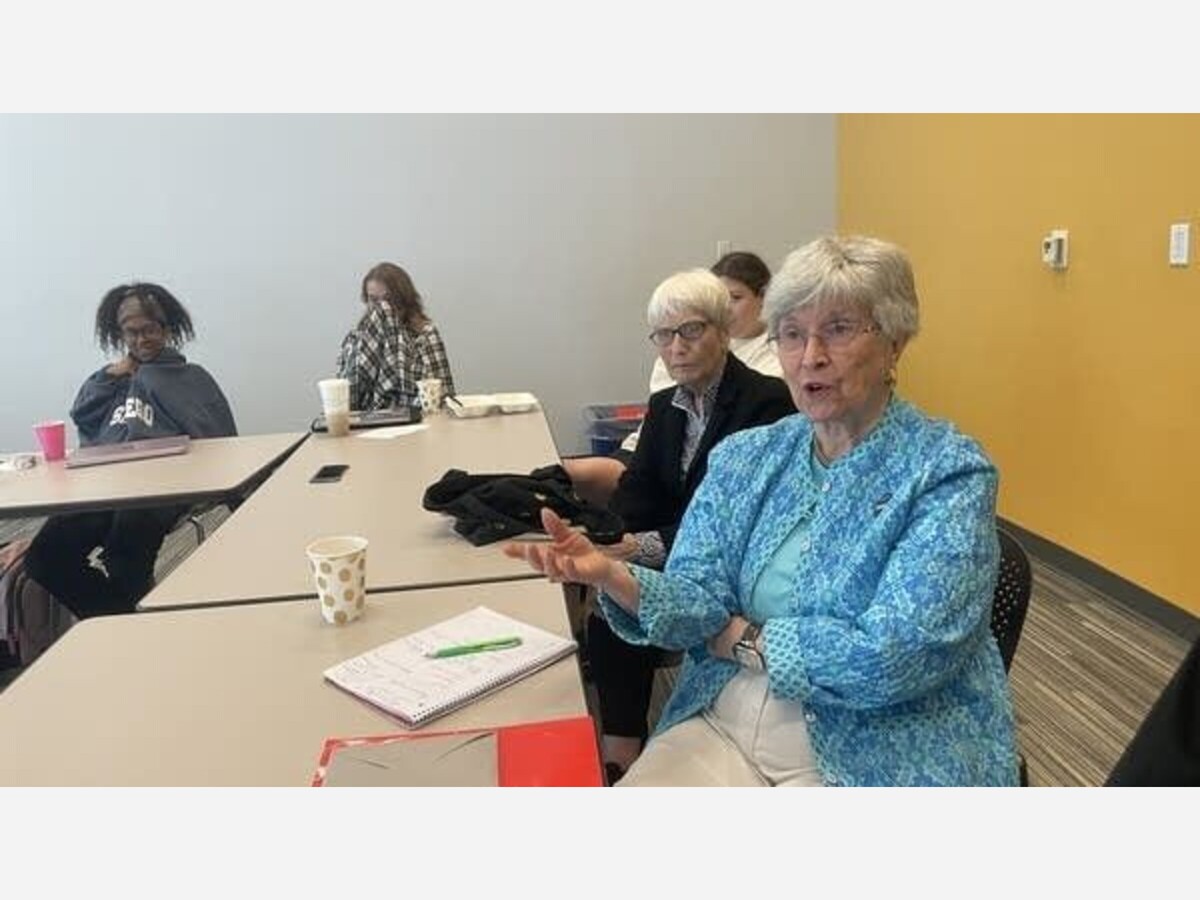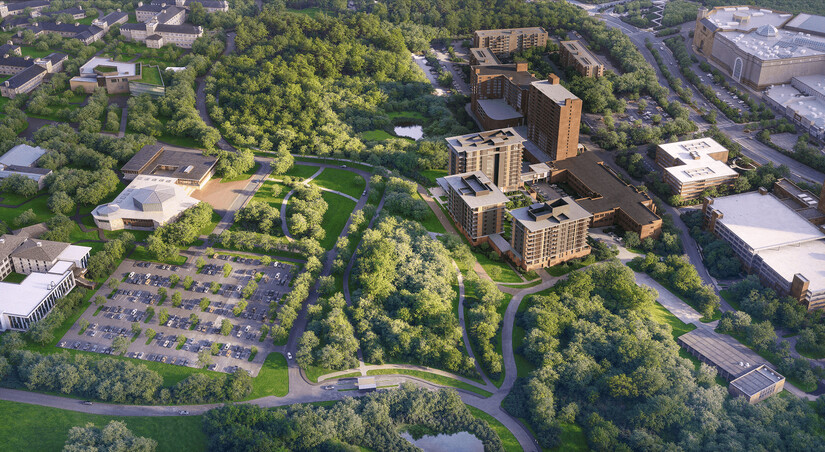Image

“These are our new customers:" colleges seek out retirees as students
On some campuses, the term “college senior” is taking on a whole new meaning.

Ann Dahl had to be at her anthropology class by 8:40 a.m. — which, in the world of college students, is basically the crack of dawn. But she still took the time to add a little blue pin to her outfit.
“It says ‘Goucher Student,’ and that’s what I am right now,” she said.
Dahl is 86 and a 1960 graduate of Goucher, a private liberal arts college just north of Baltimore. Now, she’s back as part of a pilot program for a university retirement community. Dahl is a resident at Edenwald, a senior living complex right next door, along with her fellow classmate, 87-year-old Pat Blanchard, another Goucher grad.
“I think that stimulating my brain is really important, because we’ve spent our lives doing that. And so we look for activities that are going to involve that,” Blanchard said.
University retirement communities are on the rise in the U.S. This is where a college works with a senior living community to provide its residents, who are usually 55 and older, access to classes and sporting events, along with free run of the libraries and dining halls. You could say that colleges are moving to meet the market where it is: The share of the U.S. population that’s over the age of 65 has grown significantly in the past two decades, and colleges are looking to those septa- and octogenarians to become part of campus life.
At Goucher, Blanchard and Dahl are auditing a class called “Food, Nutrition, and Culture,” taught by Carolyn Schwarz. Today, students are giving presentations about different foods.
 Ann Dahl and a fellow Goucher student give a presentation on the history of chocolate.Stephanie Hughes/Marketplace
Ann Dahl and a fellow Goucher student give a presentation on the history of chocolate.Stephanie Hughes/MarketplaceThey give some information about the history and culture of tea, which leads to a lively discussion about how it’s used in language. For example, 23-year-old Michelle West points out you can say someone’s outfit is “tea.”
“It could be a compliment — like, ‘body tea,’” she laughed.
The students, whether they’re 18 or close to 88, all seem to have a good rapport. Schwarz designed this version of the class — the discussion, the readings — with an intergenerational audience in mind. And it’s part of a larger effort by Goucher to appeal to retirees.
“These are our new customers, very much so,” said Goucher College President Kent Devereaux. “By 2034, there's going to be more Americans over 65 than there are under 20. This is the growth market for higher education in the future.”
Goucher is leasing three acres of land to Edenwald to build new senior housing. Edenwald’s also paying Goucher to provide educational programming. That includes letting Edenwald residents attend classes, access the library and dining halls, go to concerts, and show their Gopher pride at lacrosse games. (The Goucher mascot is a gopher.) Devereaux said they’ll all have cards identifying them as Goucher students.
“So we can track them. We know what they attend. We know what they like,” said Devereaux.
This is a kind of amenity for Edenwald residents. It’s included with what they pay the retirement community. Living there starts at $3,500 a month; with the new facility, that could range up to about $11,000 a month. Devereaux said the market is there.
“This is the generation, the boomers, that have amassed the biggest wealth benefit from the success of the U.S. economy, post World War II,” Devereaux said.
These kinds of university retirement communities are taking off, according to Andrew Carle. He teaches about senior living at Georgetown and consults with organizations that want to form these partnerships. He’s been tracking the trend for decades, and said there are currently close to 90 nationwide, rising from just one or two in the ‘80s.
“I also think it's just the tip of the iceberg,” said Carle.
Carle said many baby boomers are highly educated, and lots of them want to live in places that are reminiscent of college instead of age-restricted retirement communities.
“In some sense, we've created a lot of what I call ‘elderly islands,’” Carle said. “For the baby boomers, who don't see themselves as old, that's really not as acceptable an option for them.”
However, Carle said not every marriage between a university and retirement community works. He gets a lot of calls from struggling small colleges in rural areas, but he said that if they don’t have lots of sports or concerts or beautiful grounds, it doesn’t make for an attractive destination for retirees.
“This probably isn't a strategy that's going to save them,” said Carle.
At Goucher, Dahl and Blanchard are both enthusiastic about returning to their alma mater. Though — like most college seniors — they were ready for the 15-week course to be done. In the future, Goucher is considering offering shorter courses for retirees that go about seven weeks.
“I really hope we go to that, because, quite frankly, this is a long time,” Dahl said.
“Yeah, we don't have all that many years to go,” added Blanchard. “So, we kind of measure our time.”